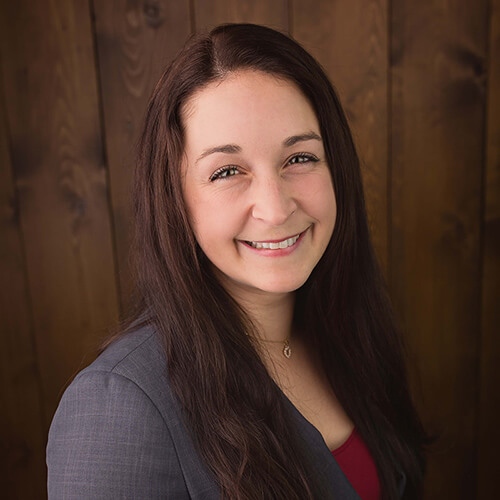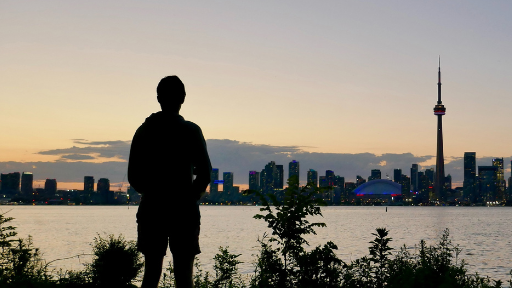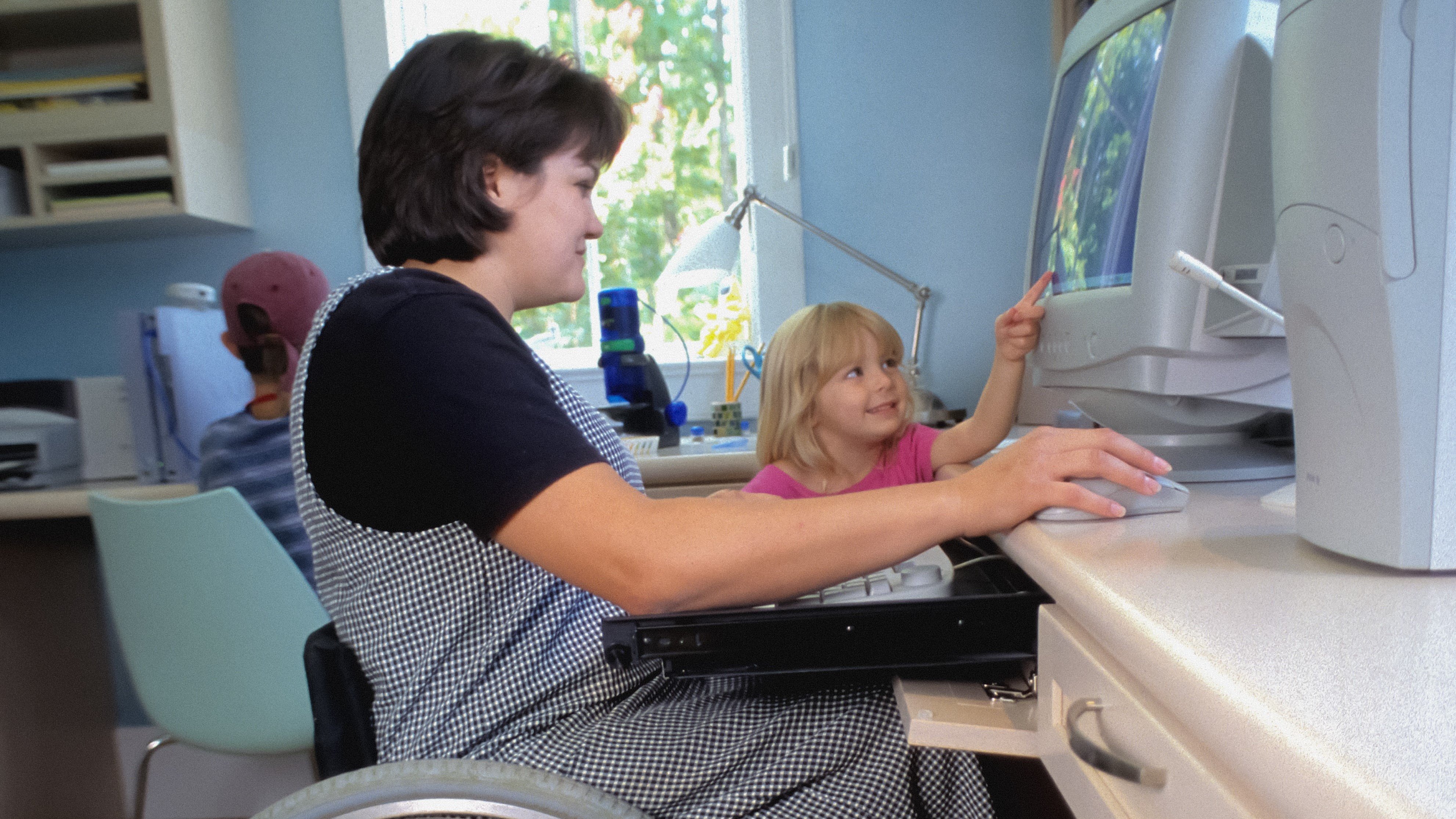
Recapping three dynamic days of learning and exploring resilience in a new way
Three Dynamic Days of Learning
Over a dynamic three days of learning, Summit for Strength, Communities Ending Poverty’s 2023 national gathering explored resilience in a new way. Emcees Ana Gonzales Guerrero, and Natasha Beedie guided our learning journey which explored how we can reduce the growing demand for individuals to be resilient and build new models that work for all. They grounded our learning in the recognition that resilient systems cannot be the answer when the systems themselves are broken.
Elders Wallace and Florence Alexson, inspirational keynotes, diverse panels, and interactive World Cafés and workshops built hope and inspiration as we connected the dots between community action and systems and policy change. The recognition that equity, diversity, inclusion, justice and reconciliation (EDIJR) needed to be embedded across all systems and work was strong throughout.
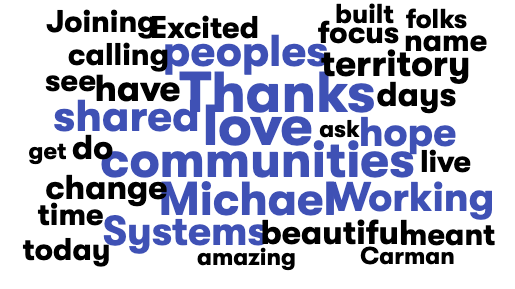
Going Back to Old Ways of Knowing
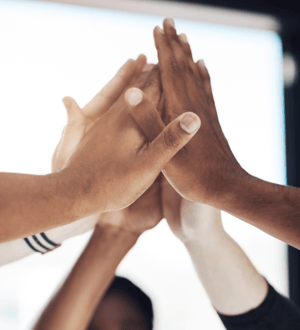 Indigenous speakers reminded us that while we busy ourselves with finding new, creative, and innovative solutions, sometimes the right thing to do is to pause, think, and even go back to old ways of knowing and acting. Karen Joseph, CEO of Reconciliation Canada, shared that public change requires an emotional shift in culture. She reflected on how we could rebuild policies and practices to allow all people to achieve their optimum potential, and advised us to use our voices, trust our unique gifts, and see ourselves as “the ones that our ancestors have been waiting for.”
Indigenous speakers reminded us that while we busy ourselves with finding new, creative, and innovative solutions, sometimes the right thing to do is to pause, think, and even go back to old ways of knowing and acting. Karen Joseph, CEO of Reconciliation Canada, shared that public change requires an emotional shift in culture. She reflected on how we could rebuild policies and practices to allow all people to achieve their optimum potential, and advised us to use our voices, trust our unique gifts, and see ourselves as “the ones that our ancestors have been waiting for.”
Michael Redhead Champagne shared that revolution does not have to be the violent disruption of a system. He spoke to intergenerational love as the opposite of intergenerational trauma, giving powerful examples around the preservation of language and culture. Michael emphasized the need to dream big and to shift power to people with lived/living experience. The shared that “Indigenous knowledge will save the world if the rest of the world is smart enough to finally listen.”
A video montage shared perspectives on hope and resilience from across sectors. Derek Cook, Director of the Canadian Poverty Institute at Ambrose University and author of The Art of Hope: Healing the Wounded City, spoke to hope being the belief in the possibility of a better future, and trust being a critical factor for resilience. He described resilient systems as highly diverse spaces where power is shared and where people were closely networked together, and how these factors facilitate innovation and enable people to take risks. Hawaii brought forward inspiring youth voices as they described resiliency as sovereignty, and how what gave them strength and hope was the knowledge that they had the opportunity to be great contributors to change.
Three World Café success stories from Bruce Grey, Portage la Prairie, and Powell River reminded us how creative solutions can help us avoid “in the box” thinking that prevents us from solving problems made more complicated by the status quo, red tape, or other barriers. Giiwe’s Sharing Circle in Bruce Grey reminded us to prioritize relationships, meet people where they are at, and consider relationships of all sorts – with people and organizations but also with the environment.
Stories of Intergenerational Collaboration
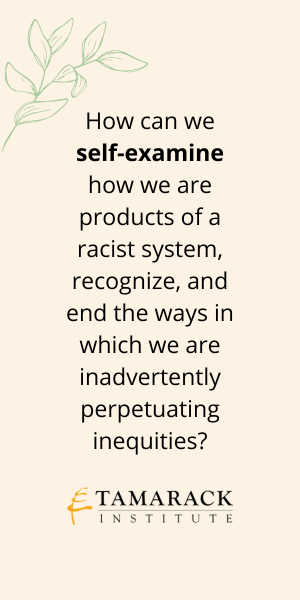 Danya Pastuszek, co-CEO, Tamarack Institute, hosted our Day 2 panel discussion, Resilient Against the Status Quo: Systems Transforming for All. Victor Beausoliel spoke to intergenerational collaboration, standing on the shoulders of those before us, and how it can take decades of healing to be able to show up in community as our best selves. He shared how coming from a place of love, through thoughts, words, and action, changes the air in the room and the types of conversations we need to have, but reminded us that we must still be unapologetic in making change.
Danya Pastuszek, co-CEO, Tamarack Institute, hosted our Day 2 panel discussion, Resilient Against the Status Quo: Systems Transforming for All. Victor Beausoliel spoke to intergenerational collaboration, standing on the shoulders of those before us, and how it can take decades of healing to be able to show up in community as our best selves. He shared how coming from a place of love, through thoughts, words, and action, changes the air in the room and the types of conversations we need to have, but reminded us that we must still be unapologetic in making change.
Juanita Zerda spoke to how true transformational change requires a change in mental models, and how while sometimes this can stem from learning more, it can also mean looking back to old ways. She challenged us to self-examine how we are products of a racist system, to recognize and end the ways that we are inadvertently perpetuating inequities.
Nation Cheong spoke to the need to embody the systems we work in as we ARE those systems, and in our systems change work, to address the cultural reality that upholds governments and institutions. He reminded us that the journey matters and challenged us to build in time in our work to dream, generate, reflect and recalibrate. He asked us to employ deep humility and to interrogate ourselves on whether we have and will be able to maintain integrity and our deepest values as get our work done.
Disruption Creating Opportunity for Change
Day 3 dug deeper into policy and systems change, and to how we can create a powerful and optimistic shared narrative for the change we want to see – a narrative that is framed in shared principles, effective in recruiting champions from across sectors, and successful in shifting mental models community-wide. We explored how disruption creates opportunity for change, and how we can leverage it to build something that makes existing models obsolete. Colleen Christopherson-Cote challenged us to consider whether systems were broken, or whether colonial and racist systems were in fact purposefully created to exclude people. Resilience is contextual and dependent on systems and structures that are designed to work for people, not to oppress them.
A key focus for this last day was how we can leverage the unique strength, experience, expertise and social role of local government and business, the need for urgency and commitment, and the co-development of opportunities to work better, together. Lisa Helps, former Mayor of Victoria, spoke to becoming radically openminded, rebuilding trust, listening rather than advocating, defending, or offering solutions. She emphasized reconciliation as poverty reduction, and the need for this work to be Indigenous-led and to follow proper protocol.
Embracing the Power of Our Network
The Communities Ending Poverty team and our members walked away from this event with some big themes top of mind, including love, empathy, relationships, collaboration, equity, amplifying the voices of lived/living experience, and making transformative change within governments, institutions, and mental models. We were reminded of the power of our network and re-affirmed our commitment to shifting power and changing the status quo to make our communities better places where our systems are purposefully re-designed to serve us all.
To learn more about Communities Ending Poverty and to join our movement, visit www.communitiesendingpoverty.ca or email maureen@tamarackcommunity.ca.
